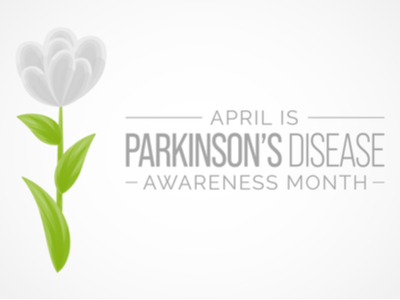Recognizing Parkinson’s Awareness Month: Understanding, Support, and Hope

April marks Parkinson’s Awareness Month, a time dedicated to raising awareness about Parkinson’s disease (PD), a progressive neurological disorder that affects movement. With millions of people worldwide living with PD, the importance of understanding, supporting, and advancing research for this condition cannot be overstated. This month, we aim to shed light on the challenges faced by those with Parkinson’s, celebrate the strides in research and treatment, and offer ways for communities to come together in support of individuals and families affected by PD.
Understanding Parkinson’s Disease
Parkinson’s disease is characterized by the degeneration of nerve cells in the part of the brain called the substantia nigra, which controls movement. This degeneration causes a reduction in dopamine, a neurotransmitter involved in coordinating movement, leading to the symptoms commonly associated with PD. These symptoms include tremors, stiffness, slowness of movement, and balance problems. While the disease progresses differently in each individual, the impact on daily living can be significant.
The Importance of Early Diagnosis
Early diagnosis of Parkinson’s disease can be challenging, as symptoms are often subtle and gradual. However, early detection is crucial for managing symptoms effectively. Neurologists use a combination of medical history, physical examinations, and sometimes specialized imaging tests to diagnose PD. Awareness of the early signs of Parkinson’s is essential for prompt diagnosis and treatment.
Advances in Treatment and Care
While there is currently no cure for Parkinson’s disease, significant advances in treatment have been made. Medications can help manage symptoms by increasing dopamine levels or mimicking its effects. Physical therapy, occupational therapy, and speech therapy are also integral parts of managing the disease, helping individuals maintain mobility, function, and communication.
Innovative research into new treatments, including gene therapy, stem cell therapy, and neuroprotective strategies, offers hope for the future. Deep brain stimulation (DBS) surgery has also provided life-changing benefits for some people with PD, improving quality of life where medication alone is not sufficient.
Supporting Those Affected by Parkinson’s
- Support for individuals with Parkinson’s and their families is vital. Parkinson’s can be an isolating experience, and the support from communities can make a significant difference. Here are a few ways to offer support:
- Educate Yourself and Others: Learning about Parkinson’s disease and sharing your knowledge can help dispel myths and reduce stigma.
- Participate in Awareness Events: Join or organize Parkinson’s awareness events in your community. These can include fundraising walks, educational seminars, or support group meetings.
- Advocate for Research Funding: Advocate for increased funding for Parkinson’s research at both the national and local levels to support the search for a cure.
- Volunteer: Many organizations that support PD research and patients rely on volunteers for their programs and events.
- Offer Practical Help: For families affected by PD, practical support such as helping with daily tasks, providing transportation, or simply being there to listen can be incredibly helpful.
The Power of Hope and Community
Parkinson’s Awareness Month is not only about understanding the disease but also about fostering a sense of community and hope. By coming together, sharing stories, and supporting research, we can make a difference in the lives of those affected by PD. Let this month be a reminder of the strength found in unity and the ongoing journey towards a future without Parkinson’s disease.
Conclusion
As we observe Parkinson’s Awareness Month, let’s commit to increasing awareness, supporting those in need, and contributing to the advancement of research. Every effort counts in the fight against Parkinson’s disease, and together, we can look forward to a day when this condition can be effectively treated or even cured. Remember, through understanding, support, and hope, we can make a significant impact on the lives of individuals and families navigating the challenges of Parkinson’s disease.



